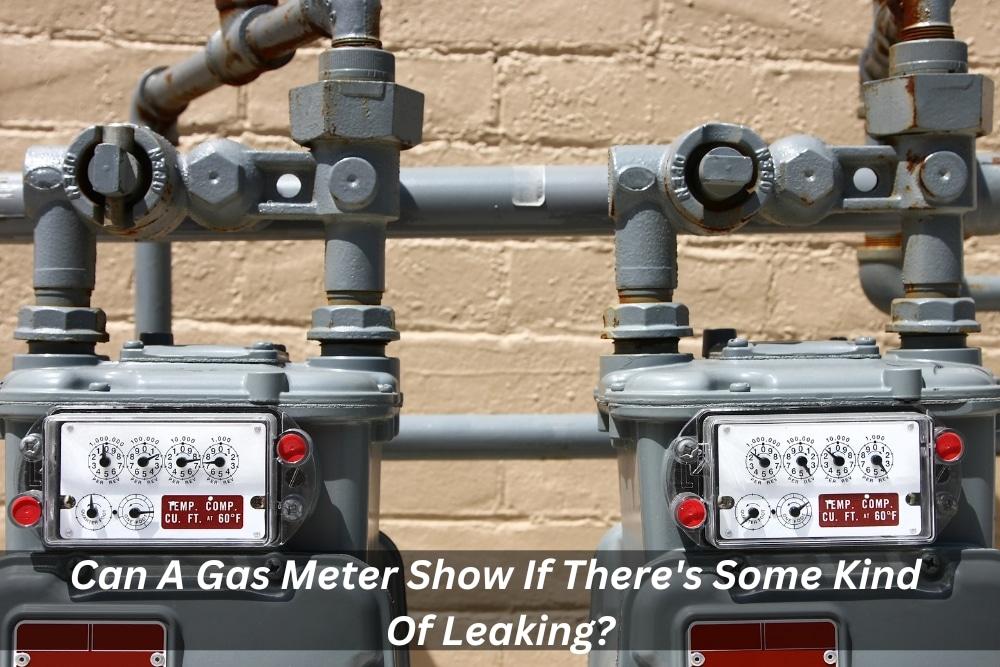Have you ever wondered if a gas meter can detect a gas leak in your home or business premises?
Gas leaks can be dangerous and costly; when inhaled, natural gas can lead to asphyxiation, and it is also flammable. Gas leak detection is essential for the safety and optimal functioning of gas appliances.
Modern gas meters are specifically designed to detect any type of gas leaking from the pipework. They accurately measure consumption, pinpoint excess usage that could indicate leakage, and alert the supplier in case of irregular consumption patterns. In this article, we will explore how a gas meter detects a potential leak, the benefits of early detection, and what warning signs you should look out for.
Gas meters are equipped with a variety of sensors that detect changes in pressure, temperature, and flow rate. These sensors measure the amount of gas being used and compare it to the expected consumption rate. If there is abnormally high usage, this could indicate a leak. The meter will then send an alert to the supplier, who can investigate further.
In addition to detecting leaks, modern gas meters also provide other benefits such as energy efficiency and cost savings. By monitoring gas usage, the meter can identify areas where energy is being wasted and suggest ways to reduce consumption. This helps to lower bills and improve the overall efficiency of the system.
In conclusion, a gas meter can detect a potential leak by measuring changes in pressure, temperature, and flow rate. Early detection of a gas leak is essential for safety and cost savings, so it is important to be aware of the warning signs and take action if necessary.
Are gas meters accurate enough to detect changes in air quality due to leaks?
Gas meters are designed to detect changes in pressure, temperature, and flow rate, which can indicate a potential leak. However, they are not equipped with sensors that measure air quality. This means that they cannot detect changes in air quality due to leaks. In order to accurately detect a gas leak, it is important to use specialized equipment such as gas detectors or combustible gas indicators. These devices measure the concentration of combustible gases in the air and can detect even small leaks. You may want to read our blog about detecting gas leakage for more information.
What types of gases can a gas meter detect?
A gas meter can detect a variety of gases, including natural gas, propane, butane, and methane. Natural gas is the most commonly used fuel in homes and businesses and is typically composed mostly of methane. Propane and butane are also common fuels used for heating and cooking. All of these gases can be detected by a gas meter, which measures changes in pressure, temperature, and flow rate.
In addition to detecting gas leaks, a gas meter can also be used to monitor energy efficiency and cost savings. By measuring the amount of gas being used, the meter can identify areas where energy is being wasted and suggest ways to reduce consumption. This helps to lower bills and improve the overall efficiency of the system.
How sensitive is a gas meter?
Gas meters are designed to be highly sensitive and accurate in detecting changes in pressure, temperature, and flow rate. This allows them to detect even small leaks that may not be visible or audible. The sensitivity of the meter depends on the type of gas being measured and the specific model of the meter being used. Generally speaking, modern gas meters are capable of detecting changes as small as 0.1% of the total gas flow.
What safety measures should be taken when using a gas meter to detect leaks?
When using a gas meter to detect leaks, it is important to take safety measures to ensure the safety of yourself and those around you. First, make sure that the area is well-ventilated and free from any combustible materials. Second, wear protective gear such as gloves, goggles, and a face mask when handling the meter. Third, never attempt to repair or replace any parts of the meter without proper training and experience. Finally, always follow the manufacturer’s instructions when using the meter.
How often should a gas meter be used to check for any kind of leak?
It is recommended to use a gas meter regularly to check for any kind of leaks. Depending on the type of gas being used, it is generally recommended to check for leaks at least once a month. For more sensitive applications, such as natural gas, it may be necessary to check more frequently. Additionally, if there are any changes in pressure or temperature that could indicate a leak, it is important to check the meter immediately.
Are there different types of meters available to detect various types of gases?
Yes, there are different types of meters available to detect various types of gases. Depending on the type of gas being measured, different meters may be more suitable. For example, combustible gas indicators are designed to measure the concentration of combustible gases in the air and can detect even small leaks. Natural gas meters measure changes in pressure, temperature, and flow rate and are used to detect natural gas leaks. Additionally, there are meters available to detect other gases such as propane and butane.
Having a gas meter can give you peace of mind knowing that your family is safe from any potentially dangerous gas leaks. And because it’s so easy to use and understand, you don’t need to worry about being left in the dark when it comes to finding out what’s going on in your home. Contact a gas fitter or gas plumber who is an expert on gas leak detection if you are planning to install a gas meter in your home.

